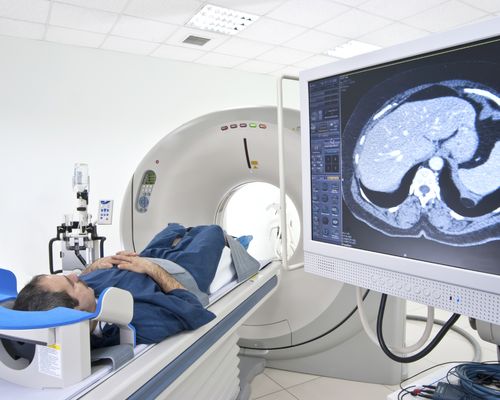Saving time, saving lives: Medicine in the Cloud
MEDUSA combines advanced data processing, image analysis, virtual collaboration and medical decision-support to save lives. Products and services from at least three companies are already on the market.
Hospital Accidents and Emergencies departments are frenetic environments the world over. Medical staff examine patients as they emerge from ambulances, knowing that diagnosing each condition correctly and quickly can be the difference between life and death. And right now they’re examining a woman who was found unconscious on the street.
Elsewhere in the hospital, a cancer patient is being scanned. He’s upset - this is his second scan. His first was in a different hospital, and there were problems transferring it. That led to delays in getting the experts around the table to determine his radiation therapy. His tumour kept growing as the delays mounted, so a new scan is required.
Faster and better decisions
But what if the doctors knew more about the woman before her ambulance arrived? And what if the cancer specialists could have examined the man’s first scan together, without leaving their desks?
These are two of the scenarios developed in the ITEA 2 project MEDUSA, managed by Philips Healthcare and bringing together French and Dutch university hospitals and SMEs. However, stresses project manager Frank van der Linden, there are many more.
“Our aim was to develop a generic approach through which medical staff could collaboratively analyse patient data and decide treatments, no matter the medical condition,” he explains. “The common factor is that bringing medical staff, patient data and support software together accelerates and improves medical decision-making, which saves lives.”
With MEDUSA, doctors would already know the woman’s relevant medical history before the ambulance picked her up, thanks to secure transmission of relevant medical data linked to her eHealth identity. During the ambulance ride, moreover, they could watch the paramedic’s initial investigations by live video. The operating theatre and team would be ready for her by the time she arrived.
Meanwhile, the cancer patient’s first scan would have been shared and analysed by doctors from both hospitals from their desktops. The virtual collaboration, enhanced by decision support systems, shortens delays between analysis and treatment.
Virtualisation platform
The key to MEDUSA’s vision is a platform through which many different eHealth systems - data management, visualisation and analysis, decision support and more – can be “virtualised”, or made available via the cloud. This allows previously incompatible systems to work together, provides virtual workspaces for medical staff to collaborate, and assures patient data privacy.
“Apart from allowing different medical systems to ‘talk’ to each other, this also means that hospitals can now access the latest image processing and other systems as cloud-based services,” adds van der Linden. “This is inherently more efficient than every hospital buying their own hardware and software, and constantly keeping it all up to date.”
bringing medical staff, patient data and support software together in the cloud accelerates decision-making and saves lives
MEDUSA significantly augmented Philips’ medical technology suite, now marketed as the Health Suite Digital Platform. It also improved the image processing tools of University of Amsterdam’s Academic Medical Center spin-off Nico-lab, and helped Dutch SME Sopheon virtualise their data processing processes, allowing their decision support systems to respond in microseconds.
In France, finally, one of the phD students who worked on the project while at Institut Mines-Télécom has now launched the company uStartApp to further commercialise the software virtualisation approach developed in the project.


